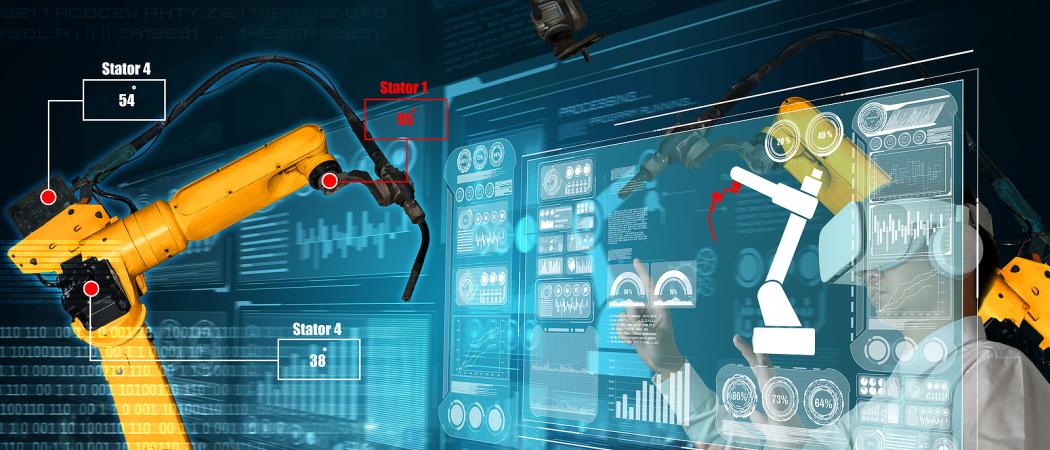Shared priorities for smart manufacturing—such as biotech—suggest ‘strategic autonomy’ should be seen as an opportunity, not a threat, Science|Business conference panelists say

Over the past year, the European Commission has begun advocating a policy of “strategic autonomy” in technology, strengthening Europe’s own tech base while becoming less dependent on others. But that doesn’t exclude the possibility of strategic cooperation, as well: it all depends on what and with whom the EU cooperates.
Indeed, one area of immediate opportunity is in manufacturing technologies – and specifically with Canada. These possibilities were explored at an online conference organised March 4 by Science|Business, with the support of NGen, Canada’s Advanced Manufacturing Supercluster.
Panelists from both sides of the ocean said that the respective capabilities of the EU and Canada, combined with their shared need to secure access to key technologies, could create new opportunities to collaborate on industrial R&D.
The last year has shown “how common the challenges are in advanced manufacturing around the world,” said NGen CEO Jayson Myers, speaking at the conference. He pointed to examples of common challenges such as bio-manufacturing scale up, developing advanced robotics capabilities, and the digitalisation of traditional industrial processes.
“The basic principle of strategic autonomy is the openness and cooperation,” agreed Mark Nicklas, head of industrial strategy at DG GROW, the European Commission’s industry department. Strategic autonomy is “not about self-sufficiency, it’s about independence,” he said.
While that requires building up industrial capacity at home, cooperation with “like-minded” countries and partners “can help us to increase the resilience and fill these gaps, and avoid unsustainable situations where you depend on a single supplier,” added Nicklas.
‘The best of partners’
The terms “strategic autonomy” and “technological sovereignty” have become common in Brussels since the COVID-19 crisis began, as EU leaders fretted over medical supplies and digital capabilities. Exactly what they mean, or how they will be acted upon, is still unclear – though many observers were taken aback by the possibility last month that the Commission may block long-time research partners like Switzerland and Israel from some of its quantum computing and space projects. Still, Brussels has invited Ottawa to discuss the possibility of Canadian researchers joining parts of the EU’s €95.5 billion Horizon Europe R&D programme.
Bio-manufacturing is one area where Europeans and Canadians are already helping one another develop expertise. The Center for the Commercialization of Regenerative Medicine (CCRM), a Canadian government-funded biomedicine partnership, has partners in Sweden, the Netherlands, Germany, and other European countries, said Cynthia Lavoie, president of CCRM Enterprises, the group’s for-profit venture investment arm. “Research is research: we need the experts in clinical development, we need experts in pre-clinical, we need experts in bio-manufacturing,” she said.
Such research partnerships contribute to autonomy on either side. COVID-19 highlights “the need for creating and supporting the growth of a nascent and domestic bio-manufacturing capability,” said Lavoie. When it comes to gene therapy and bio-manufacturing, “there’s a need for local access and local delivery of these technologies.” But developing the capacity to provide that requires “the best of partners,” she said.
Research collaboration doesn’t deprive the EU or Canada of autonomy over whatever they derive from it, some panelists argued. After all, rival companies collaborate on research through initiatives like Canada’s innovation Superclusters such as NGen, and the industrial partnerships under Horizon Europe.
Željko Pazin, managing director of the European Factories of the Future Research Association (EFFRA), said his group’s research is “pre-competitive—it’s all about cooperation.” He said EFFRA broadens out the kinds of partnerships firms are used to, and allows pre-competitive ideas to cross not only between companies, but across industries.
“What works in the auto industry might also work in the aerospace industry,” Pazin said. EFFRA is funded entirely by the private sector, and aims to promote advanced manufacturing in the EU, just as NGen does in Canada.
Such industrial partnerships can span the Atlantic, and some already do. Horizon 2020, the predecessor to Horizon Europe, funded several EU-Canadian aerospace partnerships. For example, the EU, Canada, and Russia work together on an €18.2 million project called Investigation and Maturation of Technologies for Hybrid Electric Propulsion. It is a public-private partnership developing hybrid engines for large passenger aircraft to reduce kerosene use.
Stephane Lambert, science and trade counsellor at the Canadian diplomatic mission to the EU, said Ottawa hopes to pursue more joint R&D in Horizon Europe. “We’re very keen to look at ways in which we could do more together under Horizon Europe,” he said. Lambert said one possible way could be for Canada to become an “associate” member of the programme, but stressed that the Canadian government hasn’t decided on the matter yet.
While deeper collaboration is in principle a good thing, it’s important that industry leaders in the EU and Canada don’t get ahead of themselves, warned Patricia Tamés, managing director of SMART, an advanced manufacturing cluster under the auspices of Eureka, a 45-country intergovernmental R&D partnership dating back to the 1980s.
For industrial partnerships to succeed, said Tamés, it’s necessary to first understand what each prospective partner can bring to the table. “We have to know each other first,” she said. “We have to know what kind of capabilities we have, who is doing what, and what kind of solutions this little company or big company can give to the industrial ecosystem.”





 A unique international forum for public research organisations and companies to connect their external engagement with strategic interests around their R&D system.
A unique international forum for public research organisations and companies to connect their external engagement with strategic interests around their R&D system.